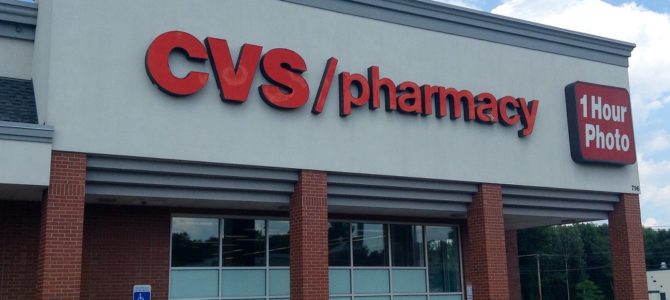
CVS Caremark customers throughout America recently received bad news as the retail pharmaceutical chain officially closed on its $69 billion acquisition of Aetna. This is bad news because CVS is now working with a nonprofit “health” advisor that may ration customers’ health care choices.
In August, CVS announced a partnership with the Institute for Clinical and Economic Review (ICER), a nonprofit group that bills itself as a medical review board. But its leadership team and the far-left billionaires footing its bill paint a troubling picture.
ICER was founded by Dr. Steven Pearson. Pearson previously worked with the United Kingdom’s National Institute for Health and Care Excellence (NICE). A pleasant-sounding moniker, NICE is anything but.
Thanks to NICE guidelines, millions of British citizens are on waiting lists at any given time for procedures, hundreds of thousands are waiting for basic diagnostic tests, and thousands of operations are regularly cancelled. During the first quarter of 2018, “the number of British patients waiting 18 weeks or more for treatment increased by 35 percent, which was an increase of 128,575 patients from about 362,000 patients in 2017, to over 490,000 patients in 2018. Additionally, by March 2018, 2,755 patients had waited over a year to be treated, compared to 1,528 patients in 2017,” according to The Heritage Foundation.
NICE is even worse about drug approvals. NICE “has declined to fund [drugs] such as Benlysta, Novartis, Sorafenib and Avastin. The first is a treatment for lupus while the last three can extend the life of cancer patients. The Rare Cancers Forum notes that 16,000 patients annually could benefit from cancer drugs rejected by NICE,” notes the National Center for Public Policy Research’s David Hogberg.
Under ICER’s direction, CVS has set a “threshold of $100,000 per QALY, or quality-of-life years, a benchmark that measures both the quantity and quality of life generated by providing a treatment or some other health care intervention.” In practice, that means ICER’s opinion about the so-called quality of life value will determine whether CVS customers can receive new prescription drugs and treatments.
This means that even if a doctor prescribes a drug for a patient, that individual may find that CVS doesn’t carry that medication if it doesn’t fit ICER’s parameters. Think of it as socialized health care without the socialistic government regime.
Former Rep. Tony Coelho (D-Calif.), a primary author and sponsor of the Americans with Disabilities Act, has been a strong critic of CVS’s decision and ICER’s approach. This is how he explained its effects:
This type of cost effectiveness analysis discriminates against people with disabilities and other vulnerable groups like the elderly because it assigns higher value to people in ‘perfect health’ than people in less-than-perfect health. So let’s say your child has a degenerative neurological condition and an expensive new drug is introduced that can halt, but not reverse, the damage done by the disease. Your child, and other patients like her, would be considered ‘worth less’ under a cost-effectiveness formula. As a result, the new treatment would not meet the threshold.
Recall that the debate over health-care rationing was a primary reason so many folks objected to ObamaCare’s Independent Payment Advisory Board (IPAB). IPAB was to be a 15-person panel deciding which treatments should be allowed under what circumstances for government-run programs.
The idea of a panel deciding who gets what kind of care and when seemed Orwellian from the start, and Americans by and large opposed the entire concept. In February, Congress did away with IPAB.
CVS is now instituting its own form of IPAB with ICER. Rationing, by any other name, is just as insidious. So who is funding this far-left push? The Laura and John Arnold Foundation has donated more than $19 million to ICER since 2015. These big-money liberals appear to have goals of moving beyond ObamaCare to a full-blown single-payer system.
In addition to funding ICER, the Arnolds have teamed up with George Soros to bankroll Patients for Affordable Drugs (P4AD), an advocacy group claiming to be bipartisan yet comprised largely of former Obama and Clinton staffers. P4AD’s political actions during this past election cycle put the truth to the lie of bipartisanship.
According to The Intercept, “P4AD touts itself as a bipartisan organization, which means that come election time, it needs to spend money targeting both Republicans and Democrats. The Democrats being targeted by P4AD are virtually guaranteed to win re-election, which allows the group to claim a bipartisan label without actually harming any Democratic incumbents.”
Obviously P4AD is not bipartisan and neither is the Laura and John Arnold Foundation. As I noted in a recent Investor’s Business Daily commentary, “[f]rom abortion, to anti-Second Amendment work, to liberal ‘investigative’ journalism, to single-payer health care, the Arnolds fund the gamut of far-left causes… They promote their bipartisan giving, yet the Arnolds fund groups whose sole mission is to demonize and bankrupt right-of-center organizations. How is that possibly bipartisan?”
Now, through ICER, the Arnolds resurrecting one of ObamaCare’s most underhanded programs. And CVS is helping them.
During the Obama administration, CVS teamed up with the White House to promote the Affordable Care Act in its stores. Now it is working with far-left actors to revive a version of ObamaCare’s rationing board. CVS customers and investors deserve better.









